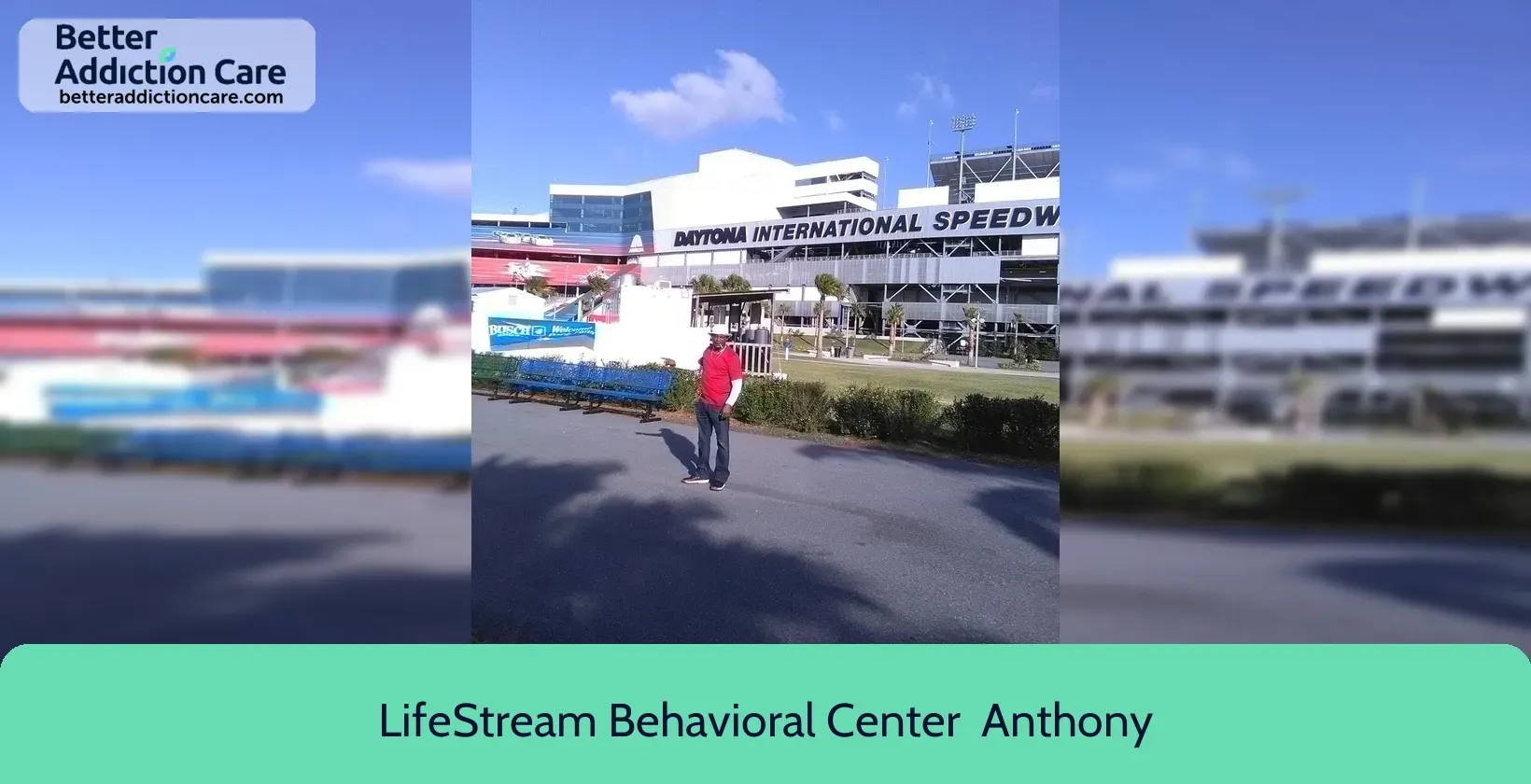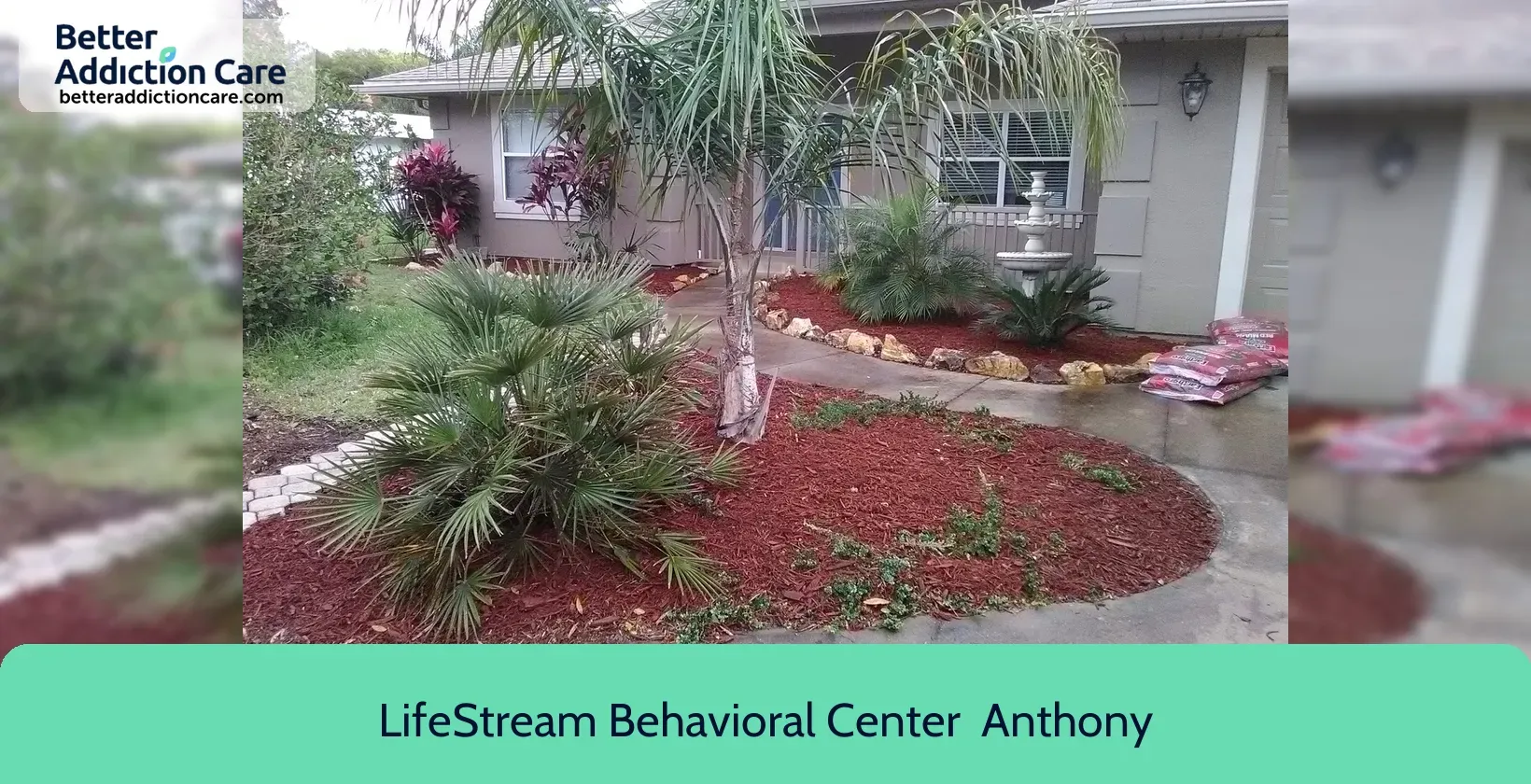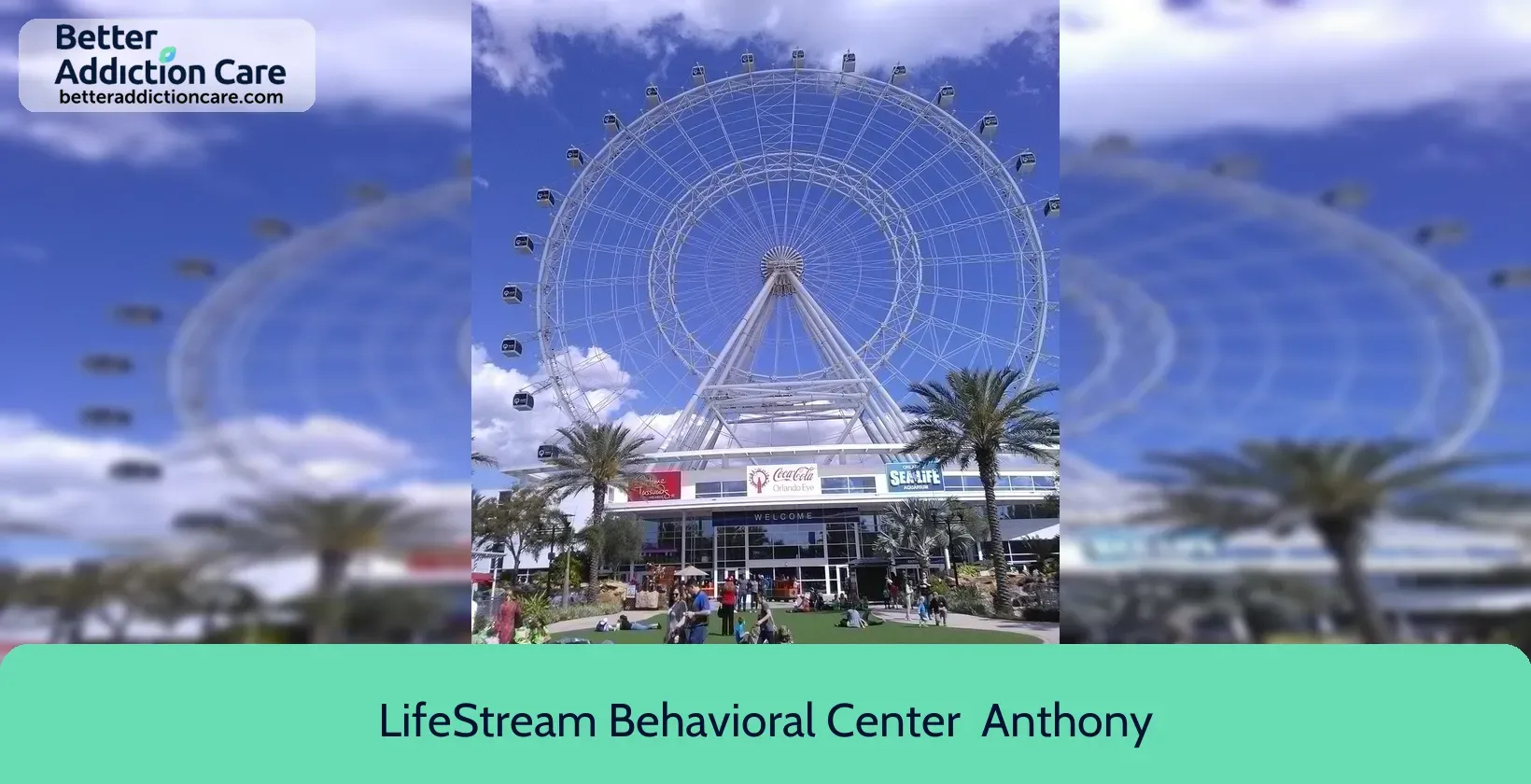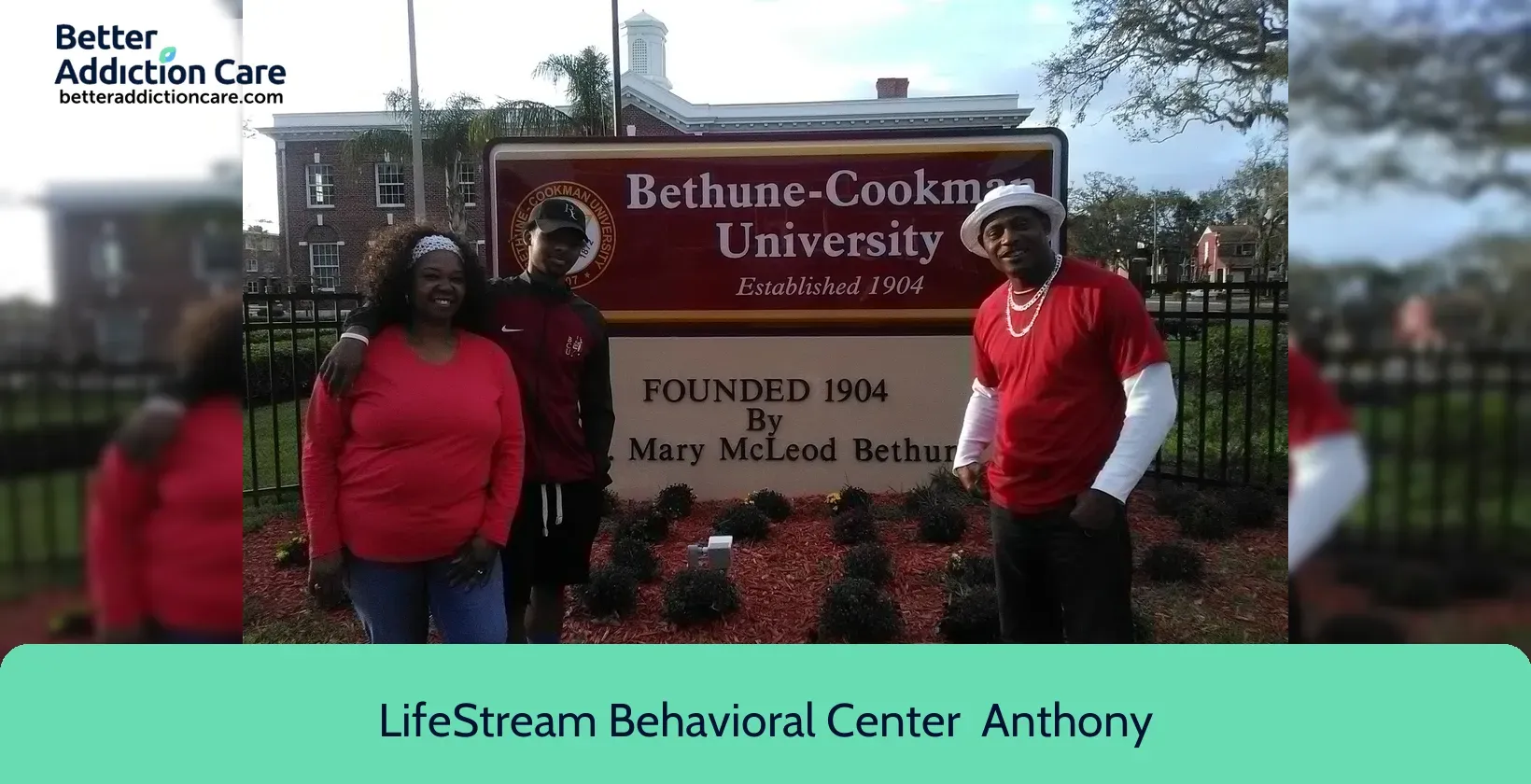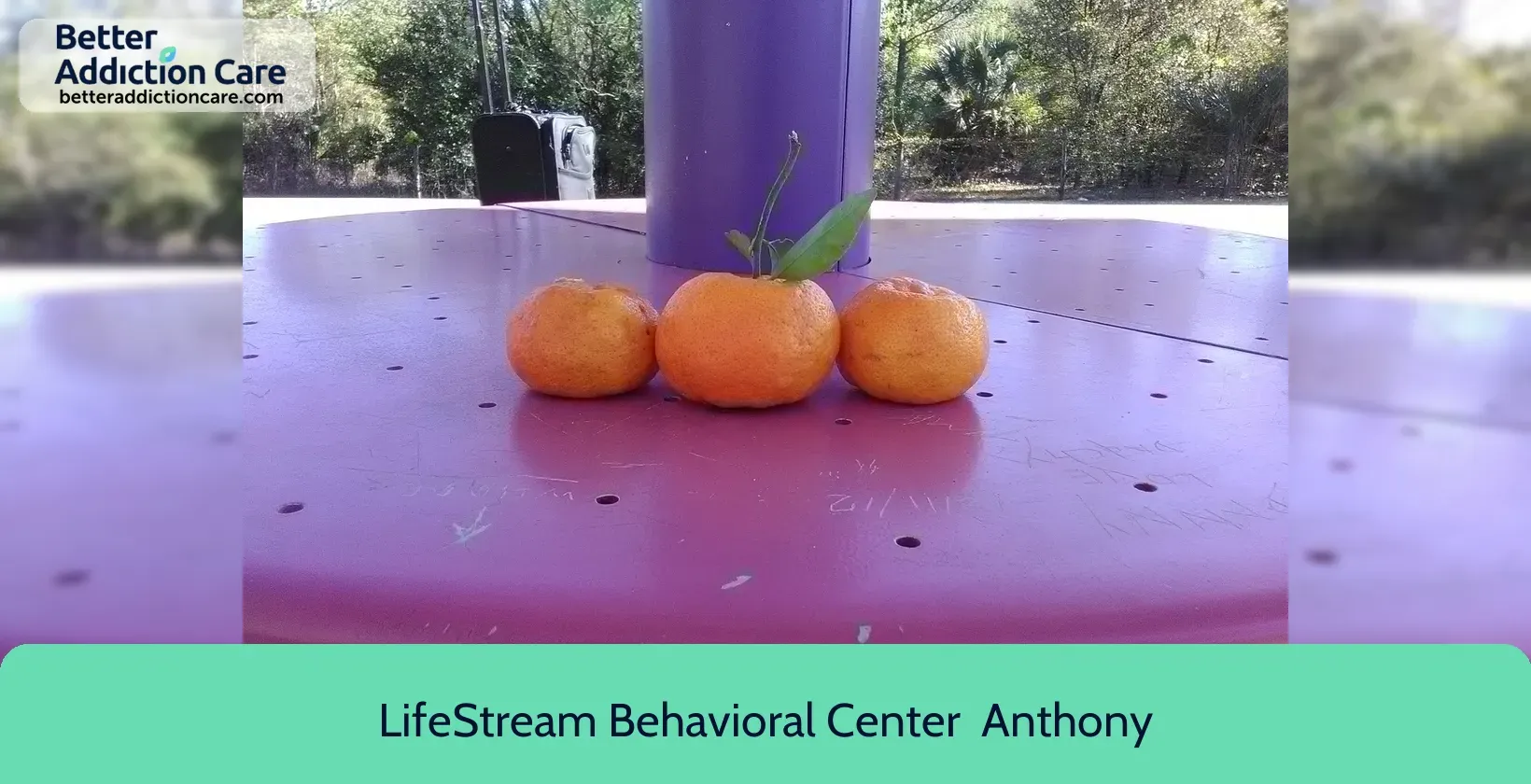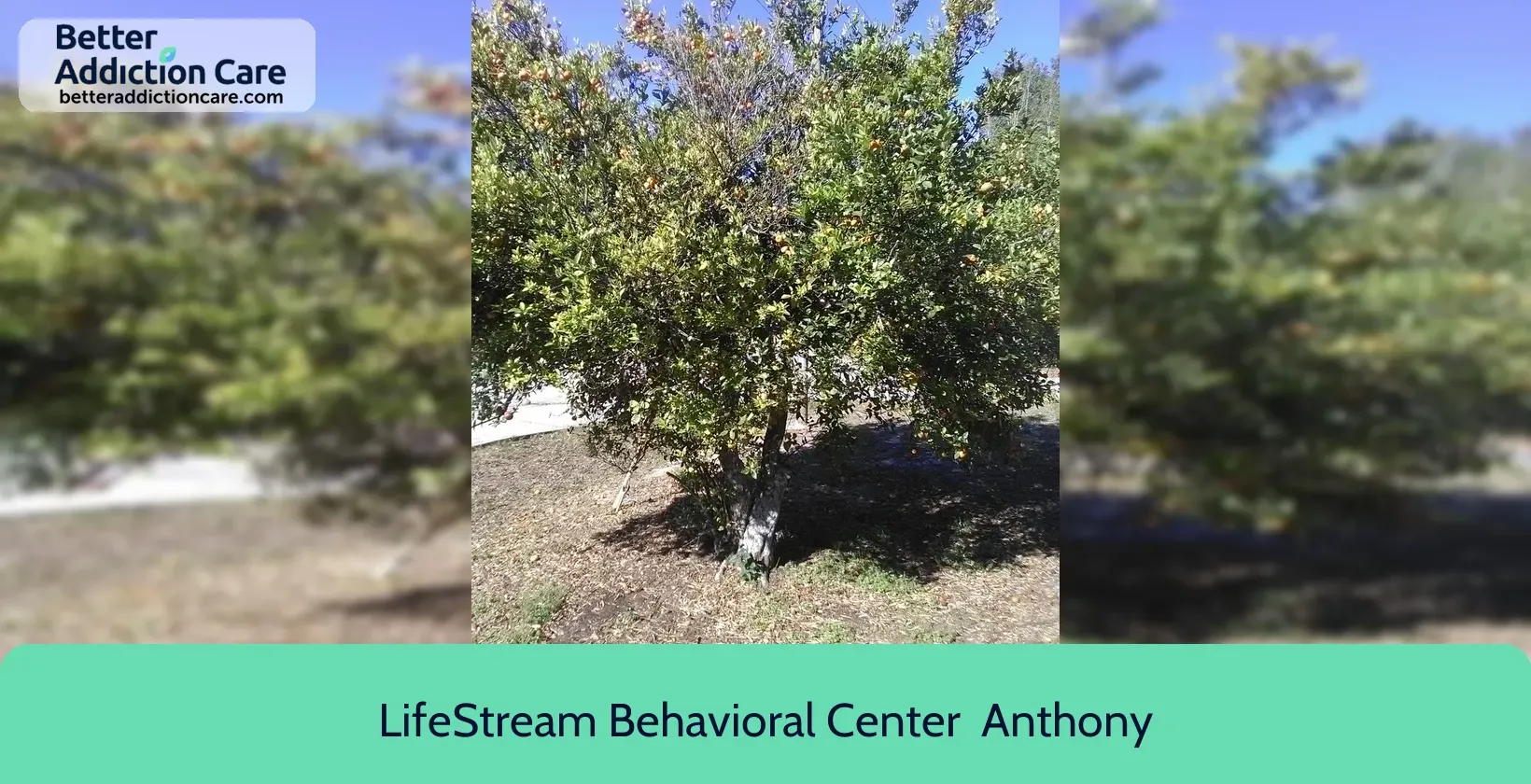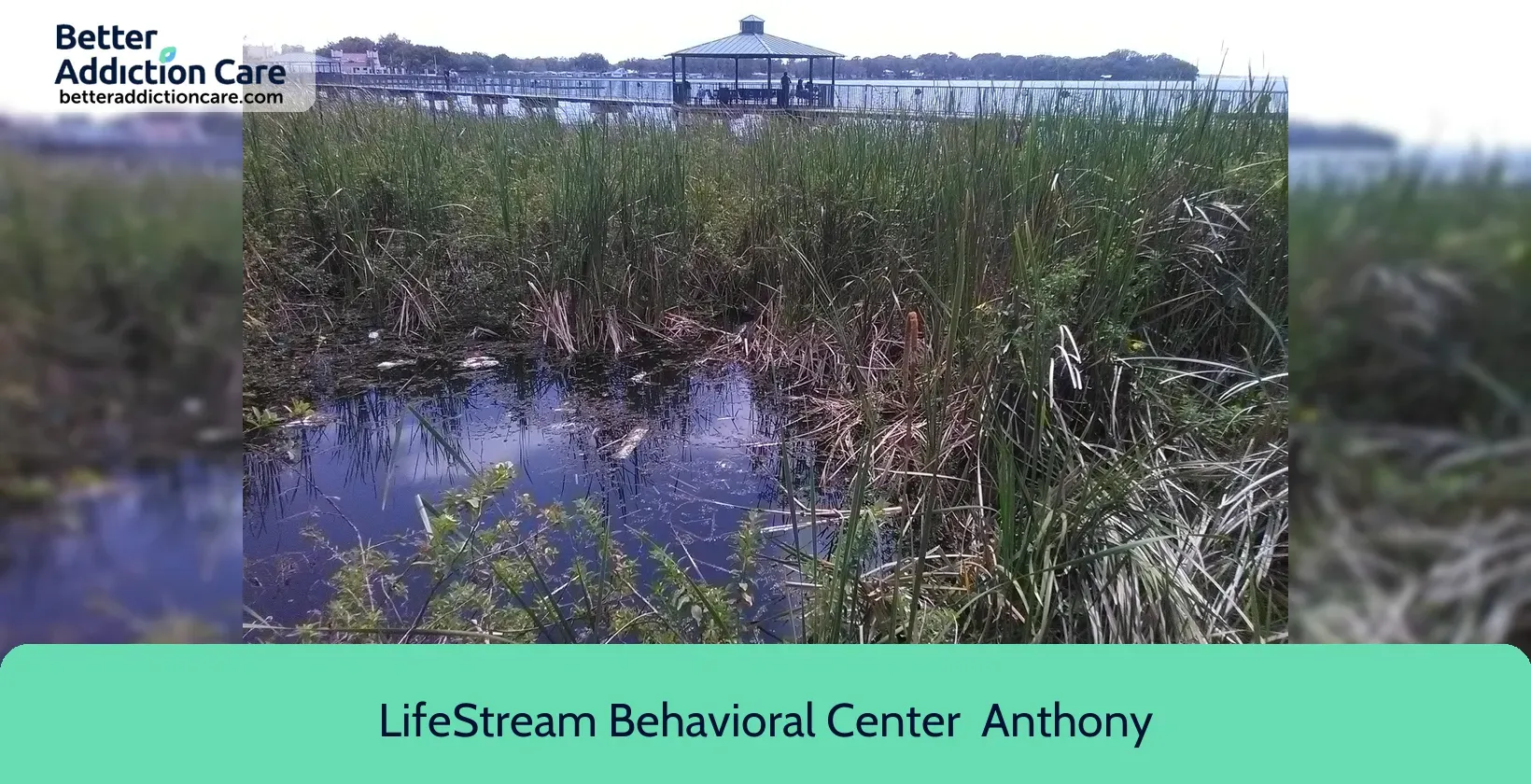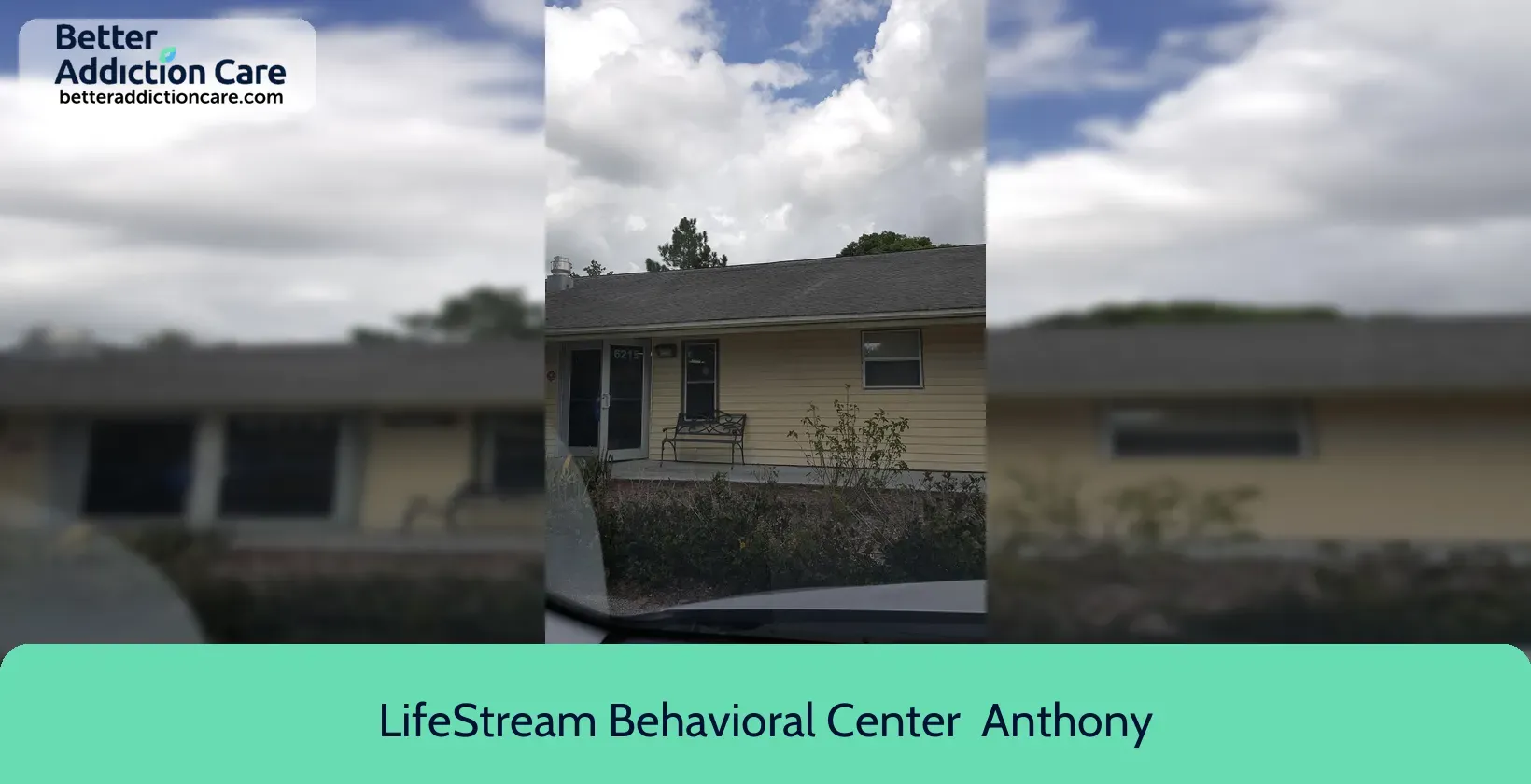LifeStream Behavioral Center - Anthony House
Overview
LifeStream Behavioral Center - Anthony House is a substance abuse treatment center for people seeking treatment near Orange County. As part of their treatment modalities for recovery, LifeStream Behavioral Center - Anthony House provides 12-step facilitation, individual psychotherapy, and cognitive behavioral therapy during treatment. LifeStream Behavioral Center - Anthony House is located in Zellwood, Florida, accepting medicaid for treatment.
LifeStream Behavioral Center - Anthony House at a Glance
Payment Options
- Medicaid
- Cash or self-payment
- State-financed health insurance plan other than Medicaid
- Sliding fee scale (fee is based on income and other factors)
- Federal military insurance (e.g., TRICARE)
Assessments
- Comprehensive mental health assessment
- Comprehensive substance use assessment
Age Groups
- Adults
- Young adults
- Children/adolescents
Operation
- Private non-profit organization
Highlights About LifeStream Behavioral Center - Anthony House
7.29/10
With an overall rating of 7.29/10, this facility has following balanced range of services. Alcohol Rehabilitation: 8.00/10, Drug Rehab and Detox: 6.92/10, Insurance and Payments: 6.67/10, Treatment Options: 7.58/10.-
Alcohol Rehabilitation 8.00
-
Treatment Options 7.58
-
Drug Rehab and Detox 6.92
-
Insurance and Payments 6.67
Accreditations
Commission on Accreditation of Rehabilitation Facilities (CARF):

CARF accreditation is a prestigious recognition for rehabilitation and human service organizations. It signifies that an organization meets high-quality standards and is committed to providing top-level care. CARF conducts rigorous evaluations to ensure compliance, enhancing an organization's credibility and reassuring clients and funders of exceptional service quality. This accreditation promotes excellence and continual improvement in the rehabilitation and human services field.
Registration: 240278
Treatment At LifeStream Behavioral Center - Anthony House
Treatment Conditions
- Mental health treatment
- Alcoholism
- Opioid Addiction
- Substance use treatment
- Co-occurring Disorders
Care Levels
- Detoxification
- Aftercare
- Outpatient
- Hospital inpatient treatment
Treatment Modalities
- 12-step facilitation
- Individual psychotherapy
- Cognitive Behavioral Therapy
- Nicotine replacement
- Group counseling
Ancillary Services
Languages
- Sign language services for the deaf and hard of hearing
- Spanish
Special Programs
- Clients with HIV or AIDS
- Children/adolescents with serious emotional disturbance (SED)
- Pregnant/postpartum women
- Active duty military
- Clients who have experienced trauma
Get Help Now
Common Questions About LifeStream Behavioral Center - Anthony House
Contact Information
DISCLAIMER: The facility name, logo and brand are the property and registered trademarks of LifeStream Behavioral Center - Anthony House, and are being used for identification and informational purposes only. Use of these names, logos and brands shall not imply endorsement. BetterAddictionCare.com is not affiliated with or sponsored by LifeStream Behavioral Center - Anthony House.
